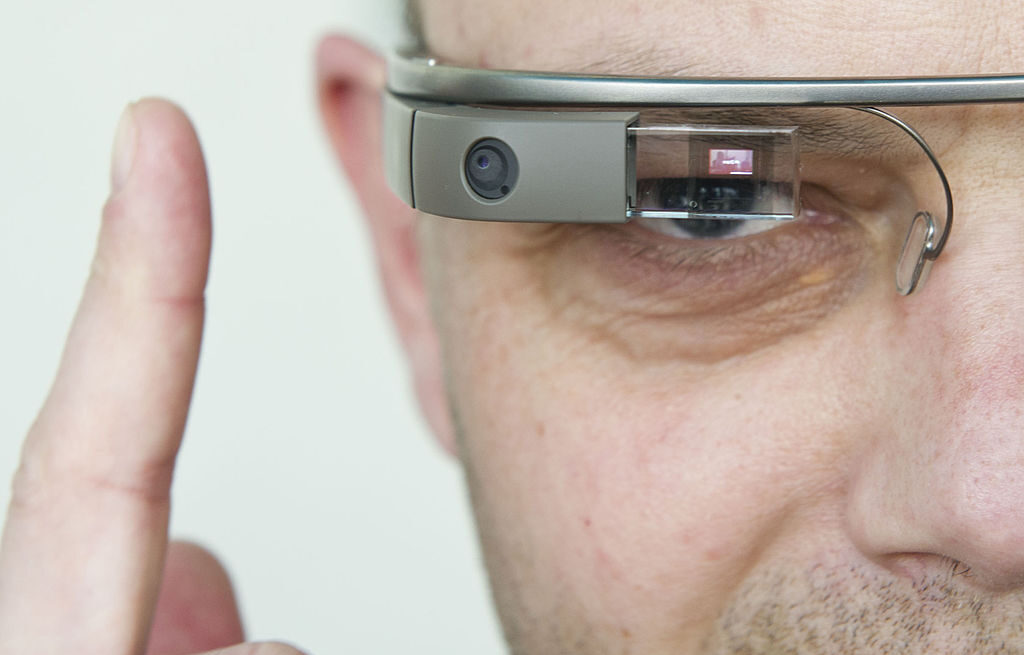Google Glass lives—and it’s getting smarter. On Tuesday, Israeli software company Plataine demonstrated a new app for the face-mounted gadget that understands spoken language and offers spoken responses. Plataine’s app is aimed at manufacturing workers. Think of an Amazon Alexa for the factory floor.
copyright by www.wired.com
 The app points to a future where Glass is enhanced with artificial intelligence, making it more functional and easy to use. Plataine, whose clients include GE, Boeing, and Airbus, is also working to add image-recognition capabilities to its app.
The app points to a future where Glass is enhanced with artificial intelligence, making it more functional and easy to use. Plataine, whose clients include GE, Boeing, and Airbus, is also working to add image-recognition capabilities to its app.
The Israeli company showed off its Glass app at a Google conference in San Francisco promoting the company’s cloud computing business. It was built using AI services provided by Google’s cloud division, and with support from the company. Google is betting that charging other companies to access AI technology developed for its own use can help its cloud business draw customers away from rivals Amazon and Microsoft.
Jennifer Bennett, technical director to Google Cloud’s CTO, said adding Google’s cloud services to Glass could help make it a revolutionary tool for workers in situations where a laptop or smartphone would be too awkward.
“Many of you probably remember Google Glass from the consumer days—it’s baaack,” Bennett said, earning warm laughter, before introducing Plataine’s project. “Glass has become a really interesting technology for the enterprise.”
The session came roughly one year after Google abandoned its attempt to sell consumers on Glass and its eye-level camera and display, which proved controversial due to privacy concerns . Instead, Google relaunched the gadget as a tool for businesses called Google Glass Enterprise Edition. Pilot projects have involved Boeing workers using Glass on helicopter production lines, and doctors wearing it in the examining room.
Anat Karni, product lead at Plataine, slid on a black version of Glass Tuesday to demonstrate the app. She showed how the app could tell a worker clocking in for the day about production issues that require urgent attention, and show useful information for resolving problems via Glass’s display.
A worker can also talk to Plataine’s app to get help. Karni showed how a worker walking into a store room could say “Help me select materials.” The app would respond, orally and on the devices display, with which materials are needed and where they could be found. A worker’s actions could be instantly visible to factory bosses, synced into the software Plataine already provides customers such as Airbus to track production operations. […]
Thank you for reading this post, don't forget to subscribe to our AI NAVIGATOR!
read more – copyright by www.wired.com


Google Glass lives—and it’s getting smarter. On Tuesday, Israeli software company Plataine demonstrated a new app for the face-mounted gadget that understands spoken language and offers spoken responses. Plataine’s app is aimed at manufacturing workers. Think of an Amazon Alexa for the factory floor.
copyright by www.wired.com
The Israeli company showed off its Glass app at a Google conference in San Francisco promoting the company’s cloud computing business. It was built using AI services provided by Google’s cloud division, and with support from the company. Google is betting that charging other companies to access AI technology developed for its own use can help its cloud business draw customers away from rivals Amazon and Microsoft.
Jennifer Bennett, technical director to Google Cloud’s CTO, said adding Google’s cloud services to Glass could help make it a revolutionary tool for workers in situations where a laptop or smartphone would be too awkward.
“Many of you probably remember Google Glass from the consumer days—it’s baaack,” Bennett said, earning warm laughter, before introducing Plataine’s project. “Glass has become a really interesting technology for the enterprise.”
The session came roughly one year after Google abandoned its attempt to sell consumers on Glass and its eye-level camera and display, which proved controversial due to privacy concerns . Instead, Google relaunched the gadget as a tool for businesses called Google Glass Enterprise Edition. Pilot projects have involved Boeing workers using Glass on helicopter production lines, and doctors wearing it in the examining room.
Anat Karni, product lead at Plataine, slid on a black version of Glass Tuesday to demonstrate the app. She showed how the app could tell a worker clocking in for the day about production issues that require urgent attention, and show useful information for resolving problems via Glass’s display.
A worker can also talk to Plataine’s app to get help. Karni showed how a worker walking into a store room could say “Help me select materials.” The app would respond, orally and on the devices display, with which materials are needed and where they could be found. A worker’s actions could be instantly visible to factory bosses, synced into the software Plataine already provides customers such as Airbus to track production operations. […]
Thank you for reading this post, don't forget to subscribe to our AI NAVIGATOR!
read more – copyright by www.wired.com
Share this: